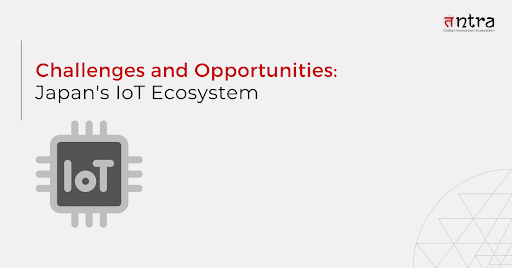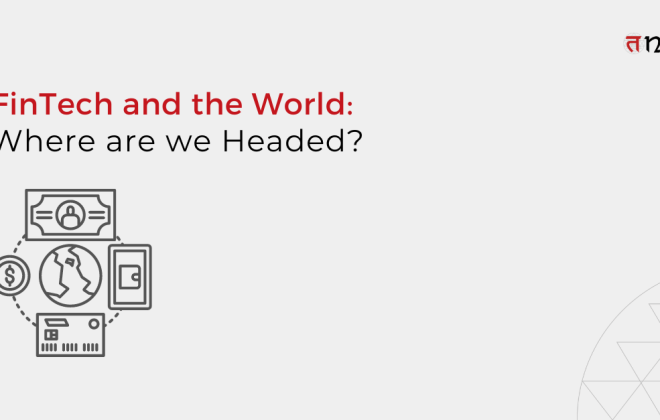
Challenges and Opportunities: Japan’s IoT Ecosystem
Table of Contents
ToggleJapan’s IoT market is on an upward trajectory, poised to reach substantial growth by 2028. The automotive sector stands out, indicating the pervasive influence of connected technologies. Despite challenges in security and interoperability, opportunities abound, especially in smart manufacturing, Industry 4.0, smart cities, and 5G integration. Japan’s IoT ecosystem faces a delicate balance between innovation and data privacy, reflecting its evolving landscape and potential to lead in technological advancements and societal transformation.
Panasonic and FamilyMart: Transforming Retail with IoT and AI Innovation
Panasonic’s collaboration with FamilyMart in developing the FamilyMart Saedo Store exemplifies a strategic application of IoT solutions to revolutionize the traditional convenience store experience. Panasonic, through its subsidiary Store Business Solutions Co., Ltd., has leveraged its extensive expertise in manufacturing to innovate supply chain management for retail.
Implementing facial recognition payment and physical detection using deep learning technology is pioneering. These digital solutions enhance the store’s added value services and reduce labor requirements by offering a highly efficient and secure shopping experience.
The Work Assist System, powered by cameras and sensors, digitizes stored information in real-time. Employees with wearable devices benefit from accurate insights, reducing labour needs and elevating store quality, service, and cleanliness (QSC).
Panasonic’s integration of digital place-of-purchase signs and price tags demonstrates a commitment to efficiency, replacing traditional printed materials. This streamlines work processes and fosters customer loyalty by enhancing the shopping experience.
Moreover, IoT Data Marketing, combining point-of-sale data with in-store analytics and customer responses, enables data-driven decision-making. This flexibility optimizes store layouts and product selections, ultimately enhancing customer satisfaction.
Panasonic’s comprehensive approach, from facial recognition to data analytics, showcases the company’s dedication to addressing industry challenges, creating innovative solutions, and shaping the next generation of retail through an IoT platform.
Source: Panasonic
Unveiling Japan’s IoT Market Growth and Industry Dynamics
As per Statista, anticipated to experience substantial expansion, Japan’s IoT market is poised to achieve remarkable growth, with estimated revenues soaring to US$37.23 billion by 2024. The automotive industry is foreseen as a dominant force within this sector, with a projected market volume of US$12.94 billion in 2024, underscoring the pervasive influence of connected technologies in Japan’s automotive landscape.
The steady adoption of IoT technology is expected to maintain an annual growth rate of 9.51% from 2024 to 2028. This sustained trajectory is forecasted to culminate in an impressive US $53.54 billion market volume by 2028, reflecting IoT solutions’ ongoing integration and adoption across diverse industries in Japan.
The smart manufacturing sector in Japan is propelled by the abundance of automobile, consumer electronics, semiconductor, and iron and steel manufacturing entities. These industries prioritize automation and the integration of cutting-edge smart technologies, including AI, IoT solutions, Big Data, and Cloud computing, to enhance quality and productivity. In 2021, the smart manufacturing market in Japan achieved a valuation of USD 10.1 billion. Projections indicate significant growth, with an anticipated surge to USD 26.2 billion by 2027, reflecting a robust compound annual growth rate (CAGR) of 18.7% throughout the forecast period.
This trajectory underscores the industry’s commitment to leveraging advanced technologies for improved operational efficiency and overall manufacturing excellence. For instance, IoT spending in logistics is expected to reach $114 billion by 2032. The estimated CAGR is 11.2%. Similarly, Internet of Things (IoT) in Healthcare Market size was valued at USD 77.8 Bn in 2021, registering a CAGR of 22.6% during the forecast period (2023-2030), and the market is projected to be worth USD 486.8 Bn by 2030.
Navigating Challenges and Embracing Opportunities in Japan’s IoT Landscape
The Internet of Things (IoT) offers opportunities and difficulties in Japan’s quickly changing technology landscape. With the help of digital transformation and reengineering services in Japan, the Internet of Things ecosystem can flourish sustainably while addressing security, interoperability, and data privacy issues.
Nonetheless, Japan has a great chance to take the lead in both technological innovation and societal change because of the potential of Industry 4.0 innovation, smart city development, and 5G technology integration.
Challenges in IoT
1. Security Issues
One significant challenge in Japan’s IoT ecosystem is ensuring robust security measures. As interconnected devices grow, the vulnerability to cyber threats increases. Ensuring the confidentiality and integrity of data transmitted between devices becomes crucial to prevent unauthorized access or data breaches.
The complexity of securing IoT-enabled devices and the potential for hacking pose ongoing challenges for the IoT landscape. Addressing these security concerns requires continuous advancements in encryption technologies, authentication protocols, and vigilant monitoring systems.
2. Interoperability Issues
It is still quite difficult to achieve smooth communication and interoperability among the many IoT devices made by various vendors. Compatibility problems may arise from the inability to integrate devices due to a lack of standard protocols.
This problem is especially important in areas like smart homes, smart cities, and industrial IoT, where various IoT devices must cooperate with one another. Common standards and protocols must be established to promote a coherent and interoperable IoT ecosystem and enable devices to share data and communicate with each other across platforms.
3. Data Privacy and Regulation
As the amount of data produced by Internet of Things (IoT) devices increases, maintaining data privacy and regulatory compliance becomes increasingly important. Like many nations, Japan struggles to establish precise laws that control the gathering, storing, and use of data from Internet of Things devices.
A careful approach is needed to strike a balance between innovation and the preservation of personal privacy. To gain customers’ trust, businesses must develop transparent processes and manage difficult legal environments. Balancing promoting IoT digital solutions and protecting data privacy is a constant struggle for Japan’s IoT ecosystem.
Opportunities in IoT
1. Innovation in Industry 4.0
Within Industry 4.0, Japan’s IoT ecosystem offers a substantial opportunity for innovation. Specifically, the manufacturing industry may use IoT technologies like AI, IIoT, and Big Data to enhance production processes, achieve predictive maintenance, and achieve advanced automation.
Japan can become a global leader in smart manufacturing by integrating smart technology, which may increase operational efficiency, decrease downtime, and improve product quality.
2. Smart City Development
By utilizing IoT technology, Japan can further its efforts towards smart cities. Smart infrastructure, sensor deployment, and data analytics can improve urban living. Public safety, waste management, energy management, and transportation are among the industries where IoT technologies might help create smart cities that are efficient and sustainable.
Government agencies, IT companies, and urban planners working together can create intelligent, connected urban settings that put the needs of their citizens and the efficient use of resources first.
3. Enhanced Connectivity and 5G Integration
Japan’s IoT ecosystem has a revolutionary opportunity with the arrival of 5G technology. 5G can greatly improve the performance of IoT devices by enabling real-time data processing and communication thanks to its high-speed, low-latency connectivity. This has particularly good potential for industries where immediate data transfer is essential, like healthcare, smart infrastructure, and autonomous vehicles.
Introducing 5G into the Internet of Things (IoT) landscape can open up new avenues for innovation and facilitate the spread of linked IoT-enabled devices among many industries. Together, telecommunication companies and IoT solution providers can drive this integration and promote Japan’s transition to a technologically sophisticated and globally integrated society.
Conclusion
Japan’s IoT landscape is on the brink of transformative growth, driven by diverse sectors like automotive and smart manufacturing. The steady ascent foreseen until 2028 reflects the nation’s commitment to integrating cutting-edge technologies.
As industries prioritize automation and innovation, the IoT market is set to play a pivotal role in enhancing operational efficiency. With a promising trajectory, Japan is poised to lead in harnessing the potential of connected technologies across various domains, ushering in a new era of technological excellence.
If you want to adopt New Economy technologies technologies such as IoT for your business, contact the best Software development company in Japan, such as Tntra, who can help you with the best IoT-enabled system. As a software product engineering company, Tntra can help you adopt custom IoT solutions.
Contact Tntra Today!





